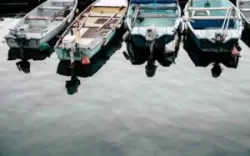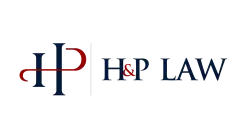
Nevada is home to over 41,000 registered boating vessels. With all of these boats on the state’s waterways, it is easy to see why boating safety is a major concern, as accidents and collisions between vessels can lead to significant personal injury for the operator and any passengers.
When accidents do occur between vessels and personal injury results, consultation with a local trusted boating accident attorney should always be victims’ primary course of action. Our legal professionals can help accident victims understand the rules and regulations that govern America’s waterways.
A major component of successful personal injury litigation involves proving that the other parties involved in a boating accident were acting in a negligent manner. The more Nevada residents understand about responsible boating practices, the more equipped they will be to spot signs of negligence and report them to their boating accident attorney if necessary.
Avoiding a Collision
When two vessels come to a crossing, each vessel assumes a role. The vessel which has the other on its starboard side is known as the “give-way” vessel. This vessel maintains the duty of avoiding a collision by altering speed or direction to cross behind the other vessel (known as the “stand-on” vessel).
Nighttime can pose unique challenges to vessels, and nighttime boating can be particularly prone to accidents and subsequent personal injury. To compensate for this increased risk, a nearly universal lighting system is used. If you see a red light crossing your vessel at night from right to left, you are the give-way vessel and must change course. However, if you see a green light crossing from left to right, you are the stand-on vessel and should maintain course and speed.
Operator Duties
Boating operators have a number of responsibilities in addition to local and federal boating laws. For example, boat captains are responsible for operating their vessels at a safe speed, which can vary depending on the situation as well as any legally posted speed limits. Maintaining safe speed on the water is one of the best ways to reduce the risk of personal injury due to boating accidents.
Boating operators also have a responsibility to avoid blatantly negligent behavior while operating their vessel. This includes irresponsible actions such as boating under the influence or purposefully boating at an excessive speed in poor conditions. Accidents and personal injury due to intoxicated drivers are a major source of concern on many of America’s waterways.
Finally, the Department of Homeland Security has issued guidance on how and why civilian boat operators must steer clear of naval vessels and other restricted areas such as power plants and dams. These security measures are designed to keep passengers, facility workers, and nearby civilians safe from the potential consequences of a crash between a vessel and these structures.
When to Contact an Attorney
For years, the attorneys at H&P Law have been helping boating accident victims in Las Vegas and Nevada as they navigate the legal processes involved in winning their case. Contact H&P Law today for insight and guidance on your case.




